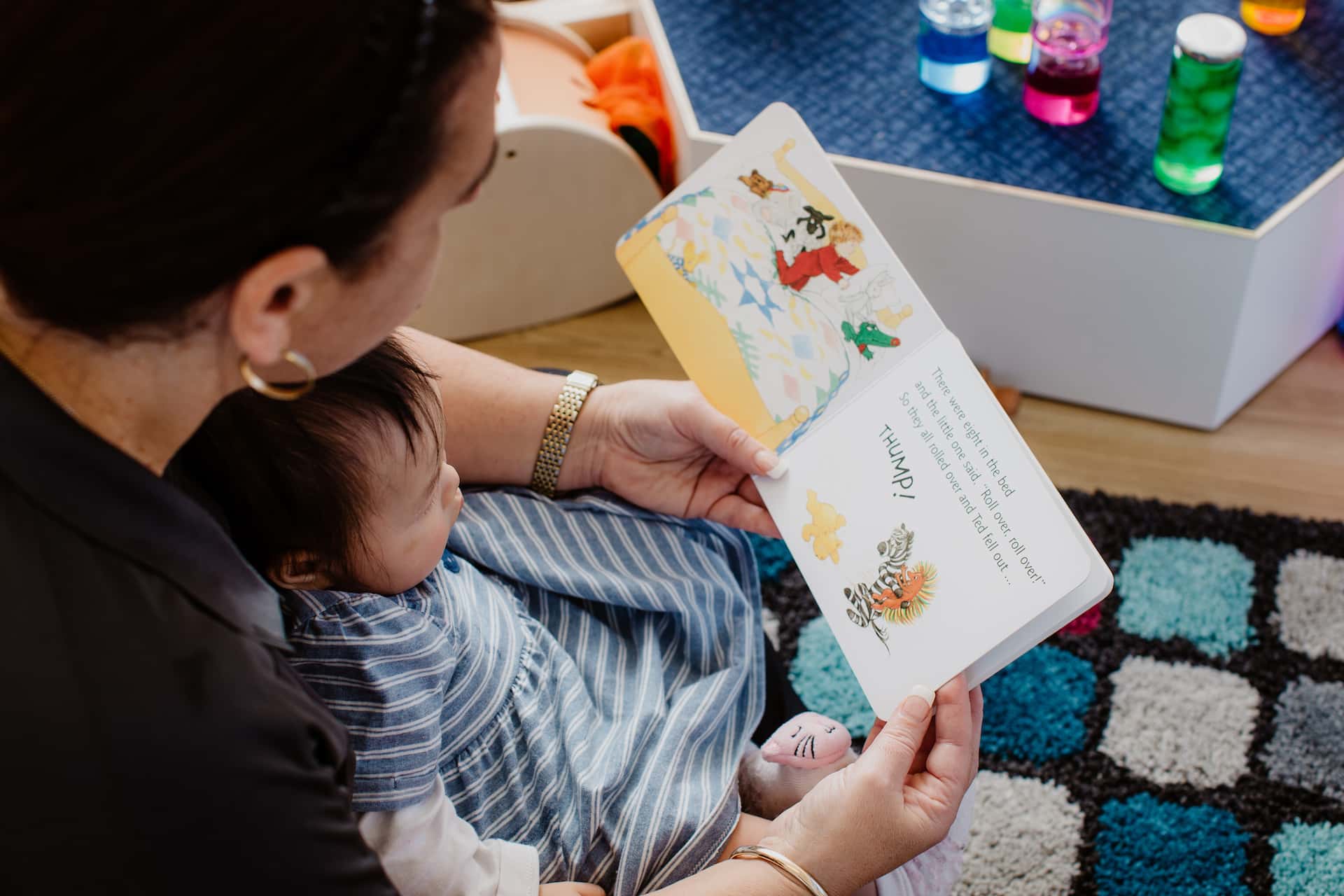March 28th, 2017
By: Petit Early Learning Journey
Reading is an incredibly important part of your child’s emotional and intellectual development. Strong reading skills set your child up for success later in life in many ways.
- Your child will learn new words and improve both their language association skills and the fundamentals of language
- Reading increases your child’s ability to learn across all subjects, not just in language and reading
- Hearing and reading stories helps your child to master concepts of logic, judgement, and cause and effect relationships
- Reading helps your child to enhance their ability to concentrate and develop a longer attention span.
Many parents read stories to their children when they are too young to read for themselves. As your children get older, instilling a love of reading can be crucial to their language skills, independence, and emotional development.
As your child is learning to read, or if they struggle with reading on their own, there are many things that you as a parent can do to help improve their abilities.
Not sure where to start? Try these 7 effective ways to increase your child’s reading skills.
1. Establish a regular reading routine
Research indicates that setting aside time daily to read to and with your child can substantially increase their reading abilities in many areas, including:
- Reading comprehension
- Vocabulary skills
- Learning to recognise words that they already know
- Learning to sound out unfamiliar words
If your child has not yet learned to read, incorporating a daily story time routine into their schedule will instil the importance of reading that they will hopefully continue to appreciate as they learn to read on their own.
As your child does learn to read on their own, you can continue your daily or nightly story time together. Gradually shift the reading responsibilities to your child so that they are reading to you instead of the other way around. This will encourage them to read without your assistance, but allow them to do so in an environment where you are still able to help them to decipher unfamiliar or difficult words.
2. Encourage your child to read on a regular basis
There are two very effective ways to encourage your child to read regularly. One is to make books available everywhere in your home. Lure your child into stories by having books on shelves or in baskets in rooms throughout your home.

Having books at their reading level available in the car, in the bathroom, next to their bed, and even in the living room next to the TV will signal to your child that reading is important and easily accessible.
Another way to encourage your child to read is to lead by example.
Parents are the ultimate role models for their children, and yours are likely to emulate the behaviour that you display. If your child sees you reading before bed every night then they are more likely to do the same. Likewise, when your child sees you reading for your own pleasure, they will see firsthand that reading is about enjoyment and not just about learning.
3. Help your reluctant reader to find books that they love
If your child appears to be uninterested in reading, it may not be because they do not like to read. The source of the problem could simply be that they do not like to read the books that they have.
Finding the right genre or type of story could be the key to finally sparking your child’s interest.
Try exposing your child to many different types of stories. The more interested your child is in the subject matter inside of a book, the more excited they will be to read it.
Mysteries, science fiction, and adventure stories are particularly popular with young boys and girls with adventurous imaginations. If your child is wildly curious about animals, outer space, or construction machines, try providing them with material about those subjects.
4. Use reading examples outside of books
Not all reluctant readers can be encouraged to read books. However there are plenty of other ways to ensure that they continue to read. Your child does not have to open a book to enhance their reading skills – there are plenty of things to read in the world around them!
Here are a few techniques that you can try to encourage your child to improve and utilise their reading skills:
- If your child asks to go see a movie, ask them to look up the movie times for you
- If your child loves to help you make dinner, let them select a recipe from a favourite cook book and read the steps to you. (If you are modifying the recipe, this is also a great way to help your child to improve their matching skills!)
- Encourage your child to read road signs, weather reports, store hours of operation, or emails from other family members.
Incorporating reading into activities that your child loves and showing them the ways in which reading is integral to their everyday life will encourage them to continue to improve their skills, even if it does not help them to enjoy reading books.
5. Stay involved in your child’s reading education
Teachers may not always know when your child first begins to fall behind in their reading skills. Some children are able to mask their difficulties, particularly in group settings, and may be too embarrassed to ask for help even if they know that they need it.
Don’t wait until the problem becomes serious to take action. Staying involved and monitoring your child’s progress on a regular basis can help you to stay ahead of and potential reading issues before they surface.

Take the time to read stories with your child, and use those moments to discern whether your child struggles to recognise and sound out words or to use context clues to determine the meaning of any words that they do not know. As your child asks questions about the story to see if they are able to comprehend the material.
If you do feel that your child’s reading skills could be improved, schedule a meeting with their teacher to make them aware of the potential problem and to come up with a solution to make improvements if necessary. Parents, teachers, and children can all work together to identify learning gaps and make improvements.
6. Never give up on your child
With constant attention and care, some struggling readers are able to bring their skills up to a level that is appropriate for their year. Other children may continue to struggle with reading into primary school or beyond.
Most of the strategies in this post are specifically geared to younger children. However if your primary school or secondary school aged child still struggles with reading comprehension, language skills, or spelling and vocabulary, know that there are still resources available to you to help improve their skills.
When Kids Can’t Read – What Teachers Can Do is specifically written for educational professionals, but the strategies contained therein can be useful to you as a parent as well.
This book breaks down reading skills into manageable components, and outlines practical strategies that can be utilised to strengthen those components. It also helps to identify habits that “dependent readers” (students who are unable to effectively read without assistance) rely on and how to decrease reliance on those habits.
7. Remember that every child is different
This seems like common sense, but as a parent it is easy to allow yourself to be frustrated with your child’s perceived lack of “adequate progress,” even if they are learning at a perfectly appropriate pace for their age.

The fact that your oldest child could read by age five does not mean that your younger child should be expected to do the same. Each child’s brain is wired differently, and their skillsets will advance and improve at a pace that is specific to the way that they interact with the world.
The factors and strategies outlined in this post are largely within your control as a parent. However, the way that your child’s brain develops is also contingent on factors that you cannot control. Every child develops at a unique pace.
Remember that your perception that your child is “falling behind” may not be accurate. If you believe that your child needs help with their reading skills, work closely with their teacher to monitor their progress and be willing to participate in strategies to improve their skills if necessary.
Above all, remember this: if your child truly does struggle with reading, the best thing that you can do is to support them as they strive to improve. If your child feels embarrassed or ashamed of their difficulties then they will be less comfortable asking for help.
Reading is an essential component of your child’s learning and development. Helping them to improve their comprehension, literacy, language, and spelling skills will set them up for future success. Don’t be afraid to ask for help, but know that there is plenty that you can do on your own to help your child learn and grow.
Source: https://www.petitjourney.com.au/7-effective-ways-to-increase-your-childs-reading-skills/7 Effective Ways to Increase Your Child’s Reading Skills
This article talks about how parents can encourage their kids to read and write. It emphasizes that learning to read and write impacts other important skills such as confidence, judgement, logic, and even relationships. How might I promote to parents the benefits and also create habits to do so?




